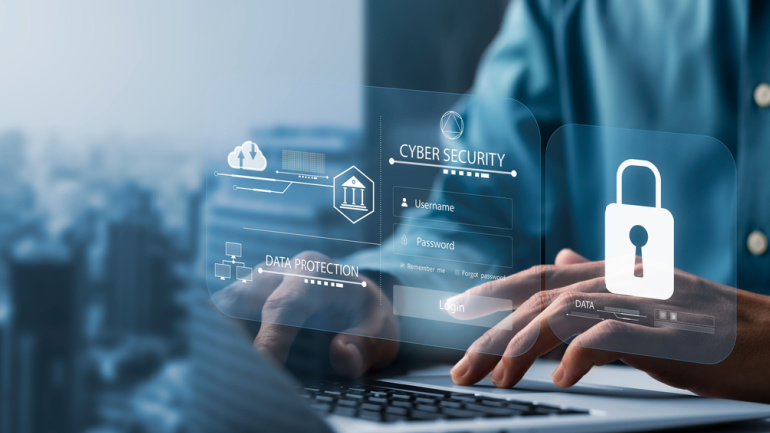In a strategic move to bolster its cybersecurity offerings, SonicWall, a prominent player in the global cybersecurity arena, has officially acquired Banyan Security. Banyan Security is recognized as a leading provider of Security Service Edge (SSE) solutions tailored for the contemporary workforce, and this acquisition is poised to fortify SonicWall’s portfolio.
In a decisive move towards advancing its digital agenda, the European Union (EU) has earmarked a substantial €763 million for the Digital Europe Programme. The lion’s share of nearly €549 million will fortify ongoing projects and multi-country initiatives aligning with the Digital Decade targets. These targets, a roadmap for Member States, aim to accelerate digital transformation by 2030.
In a push for universal cybersecurity standards, the EU faces backlash from global telecommunications titans like Ericsson and Nokia, who warn of supply chain disruptions akin to those experienced during COVID-19. Striking a balance between stringent security measures and smooth product availability is crucial, prompting these industry leaders to suggest increased self-assessment and more lenient implementation timeframes. However, the underpinning question remains – who should ensure industry compliance, the vendors or third parties? Amidst the surge in cybercrime, a secure, streamlined approach is paramount.
5G and AI are more than just buzzwords; they’re shaping up to become the backbone of technological breakthroughs. Their ultra-fast capabilities are key for advancements including IoT and intelligent automation. However, with high speed comes high stakes, particularly in the domain of cybersecurity. Yet, despite potential risks, the limitless possibilities offered by 5G and AI, whether it’s efficiency gains or real-time interactivity, are compelling. This combination is set to revolutionize industries, driving anticipation for what lies beyond the tip of this transformative iceberg.
In a strategic move to enhance cybersecurity, Japan’s prominent technology players, including KDDI Corporation, KDDI Research, Inc., Fujitsu Limited, NEC Corporation, and Mitsubishi Research Institute, Inc. (MRI), have joined forces to initiate a groundbreaking endeavor. The project, set to commence on August 1, 2023, entails a series of trials investigating the integration of a Software Bill of Materials (SBOM) into the realm of communication, encompassing 5G and LTE network equipment.
Telefónica Tech expands its global Cyber Security and Cloud operations with a new Digital Operations Center in Bogotá, offering extended support hours and further strengthening its worldwide presence with skilled experts. As a technology benchmark, the move highlights the growing importance of data security in digital transformation.
Explore the thriving IT industry channel in 2023, featuring an array of technology solutions, new market players, and evolving customer habits. With a focus on customer experience and cybersecurity services, channel firms continue to adapt, maintaining profitability in a dynamic landscape.
Nord Security partners with Intelisys, enabling their community to access comprehensive cybersecurity solutions for businesses and consumers, as companies adapt to the changing landscape of network protection amid the rise in remote work.
Spectrum Enterprise, a division of Charter Communications, Inc., has introduced Secure Access with Cisco Duo and Cloud Security with Cisco+ Secure Connect to its cybersecurity product portfolio. These two additions allow companies to offer safe and secure access to information and applications on private networks or public clouds to employees and other stakeholders. The new cybersecurity protections are integrated with the company’s managed network services portfolio, which includes Managed Network Edge and Enterprise Network Edge solutions. Managed Network Edge and Enterprise Network Edge are modular, all-in-one platforms that simplify the deployment and management of an organization’s network. While each platform offers slightly different features, both provide routing, SD-WAN, switching, security, remote access, and LAN options. Layering on Secure Access with Cisco Duo and Cloud Security with Cisco+ Secure Connect provides clients with the full protection of a secure access service edge (SASE). Secure Access with Cisco Duo helps protect organizations…
According to Cisco’s first-ever Cybersecurity Readiness Index, just 15% of global organizations are rated to have the ‘Mature’ level of preparation required to be resistant to current cybersecurity hazards. The index illustrates where organizations are succeeding in cybersecurity preparedness and where deficiencies may worsen if global business and security leaders do not act. The analysis assesses a company’s ability to sustain cybersecurity resilience in the face of new threats, and includes 19 distinct solutions across five basic pillars: identity, devices, networks, application workloads and data. In a poll of 6,700 private sector cybersecurity leaders from 27 markets, participants were questioned as to which of these technologies they had installed and the current stage of deployment. Businesses were then divided into four readiness stages: beginner, formative, progressive and mature. More than half (55%) of companies polled worldwide are in the Beginner (8%) or Formative (47%) stages of cybersecurity readiness,…













